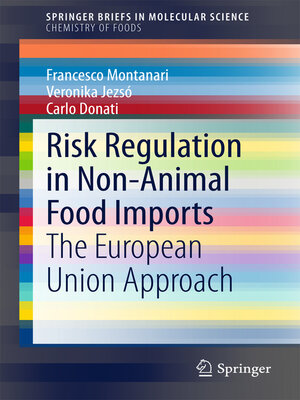Risk Regulation in Non-Animal Food Imports
ebook ∣ The European Union Approach · SpringerBriefs in Molecular Science
By Francesco Montanari

Sign up to save your library
With an OverDrive account, you can save your favorite libraries for at-a-glance information about availability. Find out more about OverDrive accounts.
Find this title in Libby, the library reading app by OverDrive.



Search for a digital library with this title
Title found at these libraries:
| Loading... |
This Brief aims at providing a general understanding of the rationale – scientific as well as political – behind EU policy and related risk management decisions in the area on non-animal food imports. Lately, various menaces associated with imported food and feed of non-animal origin appeared in the media: imported sprout seeds contaminated with E. coli, strawberries containing hepatitis A or noro viruses, to name but a few, are now as much discussed as the different well-known meat scandals. The authors explain the reinforced official controls at EU borders on certain imports of non-animal origin and the wide range of EU measures that currently foresee trade restrictions for imports presenting chemical and non-chemical 'high risks' from a public health perspective (so-called 'emergency measures'). The Brief closely examines chemical (and also non-chemical) risks associated with imports of non-animal origin and their impact on human health. The authors also consider the role risk analysis is playing to underpin risk-management decisions at EU level, including the scientific output by the European Food Safety Authority (EFSA).






